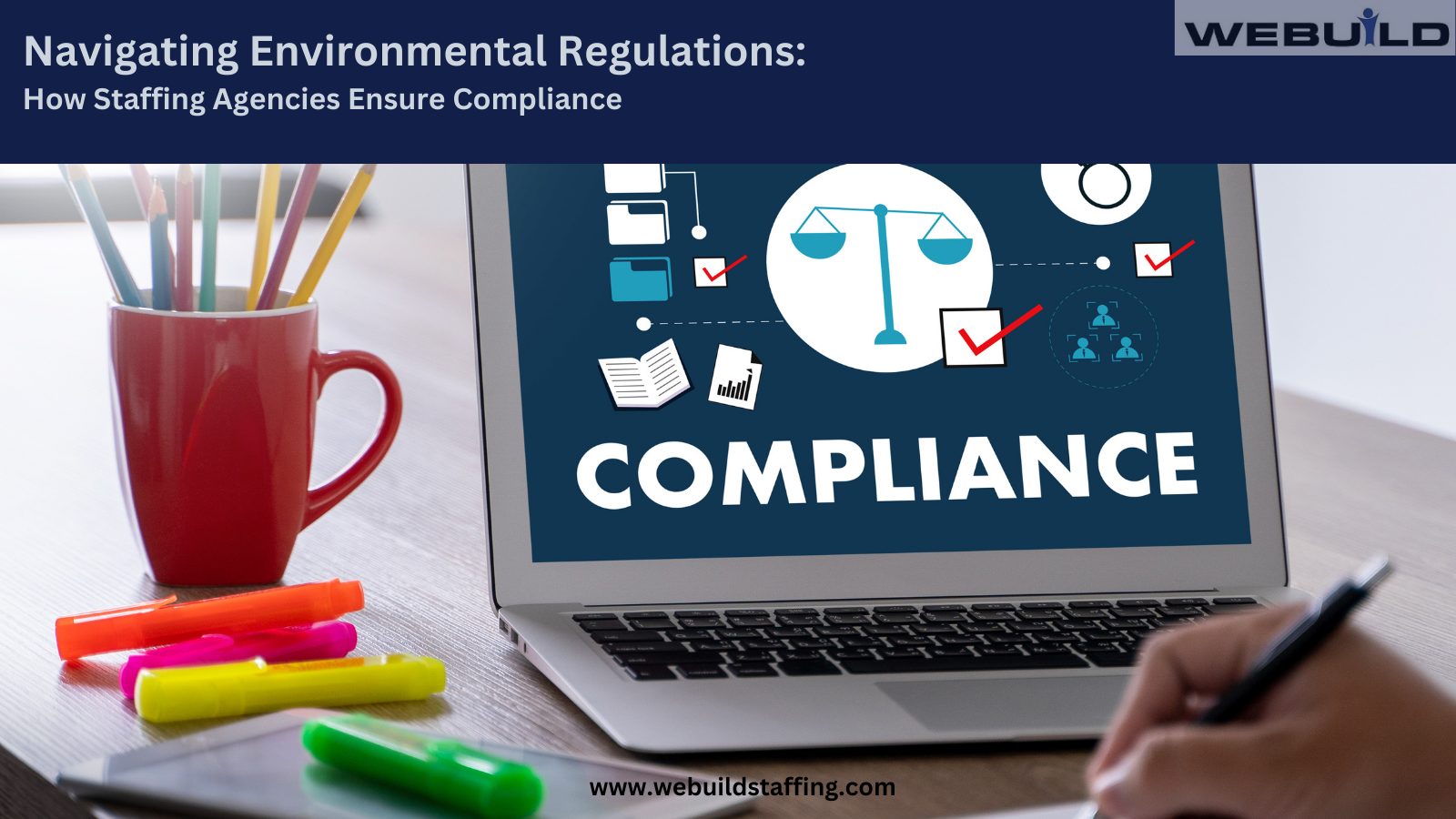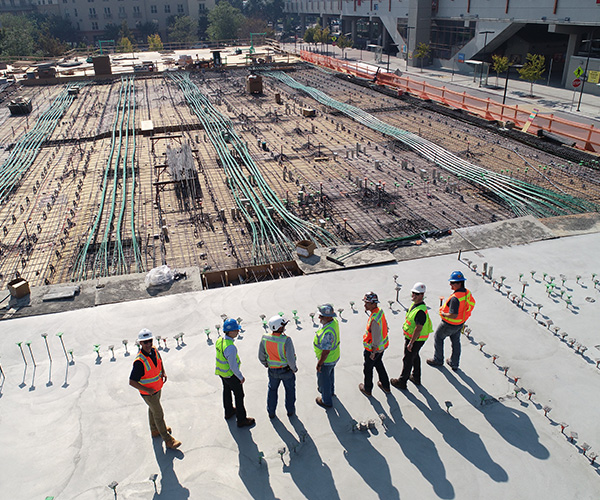Innovations in Pre-Employment Screening in the Construction Industry
WEBUILD STAFFING BLOG |
Innovations in Pre-Employment Screening in the Construction Industry

Pre-employment screening is a crucial step in the hiring process for construction companies, ensuring that they select qualified, reliable, and safety-conscious workers for their projects. Traditionally, pre-employment screening has involved background checks, drug testing, and verification of qualifications. However, with advancements in technology and changing industry needs, innovative approaches to pre-employment screening are emerging, employers need to stay abreast of the latest innovations in pre-employment screening for construction workers and how these technologies and methods are revolutionizing the hiring process and improving workforce quality and safety.
The Importance of Pre-Employment Screening in Construction:
In the construction industry, where safety is paramount and the quality of work directly impacts project outcomes, pre-employment screening plays a vital role in mitigating risks and ensuring workforce competency. Effective pre-employment screening helps construction companies:
- Ensure Safety: Screening for drug use, criminal history, and safety violations helps identify candidates who may pose a risk to workplace safety, reducing the likelihood of accidents, injuries, and liability claims.
- Verify Qualifications: Verifying the qualifications, certifications, and licenses of candidates ensures that they possess the skills and credentials needed to perform their job duties safely and effectively.
- Protect Company Reputation: Hiring workers with a history of misconduct or incompetence can damage a construction company’s reputation and credibility, leading to lost contracts, legal issues, and financial losses.
- Improve Workforce Quality: Pre-employment screening helps construction companies attract and retain high-quality talent, leading to improved project outcomes, client satisfaction, and profitability.
Innovations in Pre-Employment Screening for Construction Workers:
Biometric Identification: Biometric identification technologies, such as fingerprint scanning, facial recognition, and iris scanning, are revolutionizing the way construction companies verify the identity of job applicants. Biometric identification systems provide a secure, efficient, and accurate method of verifying the identity of candidates, reducing the risk of identity theft, fraud, and impersonation.
Behavioral Assessments: Behavioral assessments use psychometric testing and personality assessments to evaluate the behavioral traits, attitudes, and work styles of job applicants. These assessments help construction companies identify candidates who possess the right temperament, communication skills, and problem-solving abilities to succeed in the construction industry. Behavioral assessments can also uncover red flags, such as impulsivity, aggression, or dishonesty, that may indicate a poor fit for the job.
Virtual Reality Simulations: Virtual reality (VR) simulations allow construction companies to assess the technical skills, spatial awareness, and problem-solving abilities of job applicants in a simulated work environment. VR simulations provide candidates with hands-on experience of performing common construction tasks, such as operating heavy machinery, erecting scaffolding, or reading blueprints, allowing recruiters to evaluate their proficiency and readiness for the job.
Predictive Analytics: Predictive analytics uses data analysis and machine learning algorithms to predict the future performance, behavior, and retention of job applicants based on their past experiences, qualifications, and attributes. By analyzing large datasets of historical hiring data, construction companies can identify patterns, trends, and correlations that indicate which candidates are most likely to succeed in specific roles. Predictive analytics can also help companies identify areas for improvement in their recruitment processes and make data-driven decisions to optimize workforce planning and management.
Blockchain Verification: Blockchain technology offers a secure and tamper-proof method of verifying the qualifications, certifications, and licenses of job applicants. By storing credentialing information on a decentralized ledger, construction companies can ensure the authenticity and integrity of candidate credentials, reducing the risk of fraud, misrepresentation, and credentialing errors. Blockchain verification also streamlines the verification process, reducing administrative burden and accelerating time-to-hire.
Remote Proctoring: Remote proctoring technologies allow construction companies to administer pre-employment assessments and tests to job applicants remotely, eliminating the need for candidates to travel to testing centers or offices. Remote proctoring solutions use webcams, microphones, and screen monitoring software to ensure test integrity and prevent cheating, allowing companies to assess candidates’ skills and competencies efficiently and cost-effectively.
Social Media Screening: Social media screening involves monitoring and analyzing job applicants’ social media profiles to assess their suitability, professionalism, and cultural fit for a job role. While controversial, social media screening can provide construction companies with valuable insights into candidates’ behavior, attitudes, and character traits that may not be evident from traditional application materials. However, companies must be mindful of legal and ethical considerations and ensure that social media screening is conducted in a fair, transparent, and non-discriminatory manner.
Best Practices for Implementing Innovative Pre-Employment Screening:
- Define Screening Criteria: Clearly define the screening criteria and requirements for each job role based on the specific skills, qualifications, and attributes needed for success.
- Select Appropriate Technologies: Choose pre-employment screening technologies and methods that align with your company’s needs, budget, and objectives, taking into account factors such as accuracy, reliability, scalability, and ease of implementation.
- Ensure Compliance: Ensure that pre-employment screening processes comply with relevant laws, regulations, and industry standards, including data privacy, anti-discrimination, and fair hiring practices.
- Provide Training and Support: Provide training and support to recruiters, hiring managers, and candidates to ensure they understand the purpose, process, and implications of pre-employment screening and how to navigate the screening process effectively.
- Maintain Transparency: Maintain transparency and open communication with candidates throughout the screening process, providing clear explanations of the screening criteria, procedures, and outcomes.
Webuild Staffing Agency is a leading executive search and staffing agency dedicated to the construction, engineering and environmental industries. To learn more please visit: www.webuildstaffing.com










